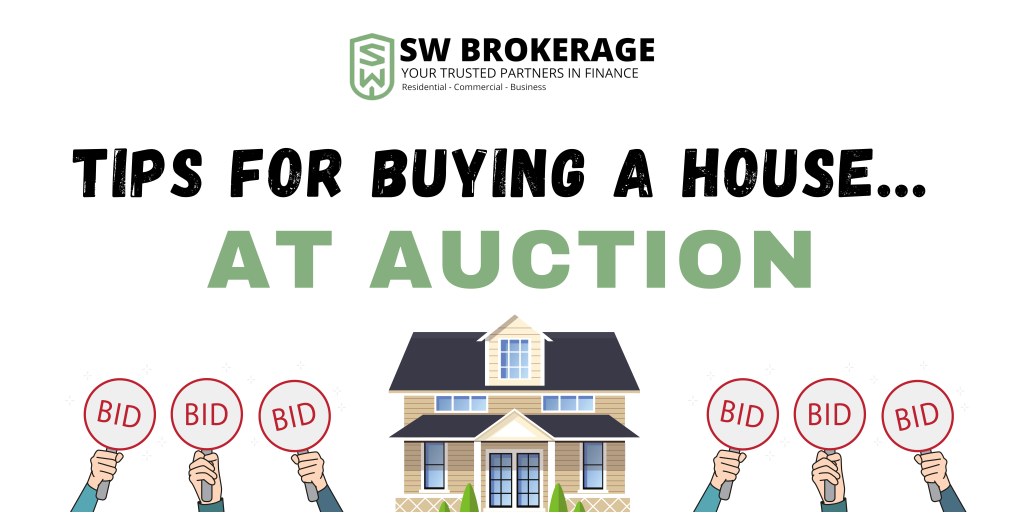
Buying a house at auction in Australia can be an exciting and potentially lucrative process, but it’s also a unique and sometimes daunting experience, especially for first-time buyers. Unlike private sales, auctions are fast-paced and competitive, with the potential for high emotional and financial stakes. If you’re considering buying a property at auction, here are some essential tips to help you navigate the process successfully.
Why using a Finance Broker is important : Understanding your borrowing power is the first crucial step in securing a loan. A finance broker provides expert guidance tailored to your unique circumstances. My focus is on attention to detail and clear communication, ensuring you fully grasp every part of the process. I am committed to finding the most suitable loan for you, making your experience as smooth and comfortable as possible. Trust that you’re in good hands with a broker who prioritizes your needs every step of the way
1. Secure a Pre-approval
A pre-approval is confirmation from a lender that they are, in principle, willing to lend you a certain amount of money to buy a property. They have conditions and can only be used for suitable properties, but they can give you confidence when going into an auction of how much you’re able to afford.
When you buy a property at auction, you accept it unconditionally and can’t put in a finance clause. This means if you win a property at auction and later discover you can’t afford it, you could be on the hook for some significant expenses.
If you get a pre-approval through a mortgage broker, they will take you through exactly what you can afford and what costs and fees are involved so you can be certain that you’re buying what you can afford at auction.
2. Understand the Auction Process
Before you even step foot in an auction room or log in to an online auction, it’s crucial to understand how the process works. Auctions typically involve bidding against other prospective buyers, with the highest bid winning the property. The auctioneer will start the bidding at a minimum price and then call for higher bids. Once the bidding slows down and no further offers are made, the auctioneer will declare the property sold to the highest bidder.
3. Set a Budget and Stick to It
It’s easy to get caught up in the excitement of bidding, but it’s important to set a maximum price you’re willing to pay and stick to it. Determine your budget in advance and avoid the temptation to exceed it, as emotional bidding can lead to overpaying and financial strain. Your maximum price can be guided by your pre-approval.
4. Register to Bid
Most auctions require you to register as a bidder beforehand. This usually involves providing identification and proof of funds. Check the auction house’s requirements well in advance to ensure you complete all necessary paperwork.
5. Understand the Auction Terms
Read the auction terms and conditions carefully. These documents will outline important details such as the deposit amount, settlement period, and any specific clauses related to the sale. If you’re unsure about any terms, seek clarification from the auctioneer or consult a legal professional.
6. Attend the Auction
On auction day, arrive early to inspect the property one last time and to familiarise yourself with the auction environment. If you’re bidding in person, be attentive to the auctioneer and the other bidders. If you’re participating online, ensure you have a stable internet connection and are familiar with the platform’s features.
7. Know Your Rights and Obligations
Once the auctioneer’s hammer falls and you’re the winning bidder, you are legally bound to complete the purchase. Ensure you understand your obligations, including the deposit payment and settlement dates. If you have any concerns or uncertainties, consult with a legal professional immediately after the auction.
8. Prepare for Post-Auction
After a successful bid, promptly arrange for:
- Legal Assistance: Engage a solicitor or conveyancer to handle the legal aspects of the property transfer.
- Inspection and Reports: Conduct any final inspections and order necessary property reports to confirm the condition of the property.
- Final Payment: Ensure you are ready to complete the payment and settle on the agreed date.
Conclusion
Buying a house at auction can be a rewarding experience if approached with preparation and strategy. By understanding the auction process, conducting thorough research, and securing your finances, you can increase your chances of securing your dream home at a fair price.
The number one takeaway is to ensure you know how much you can afford, and the best way to do this is by getting a pre-approval. Take advantage of the skill, experience and care of the SW Brokerage team to make sure you’re getting a loan that works best for your circumstances.
